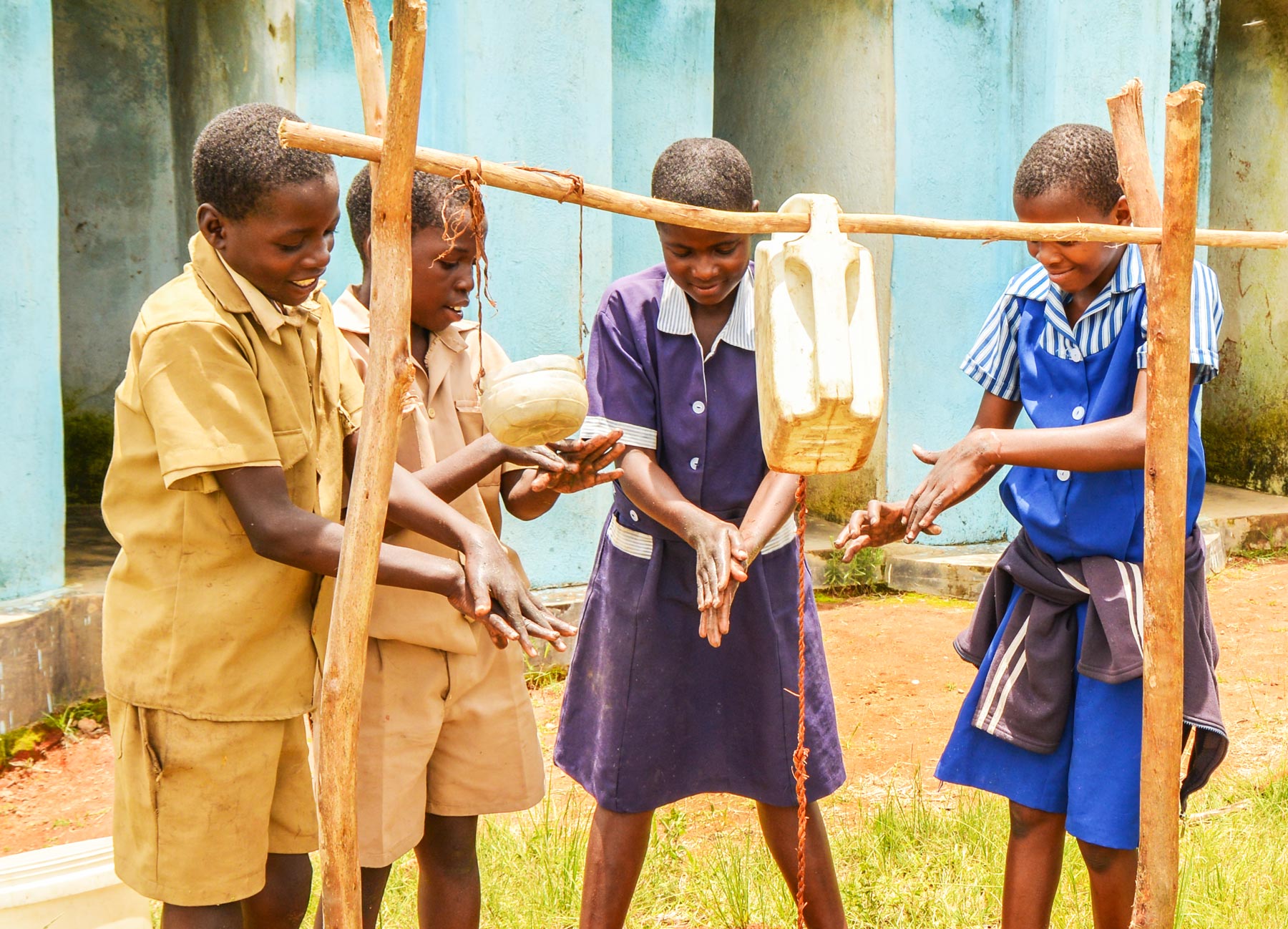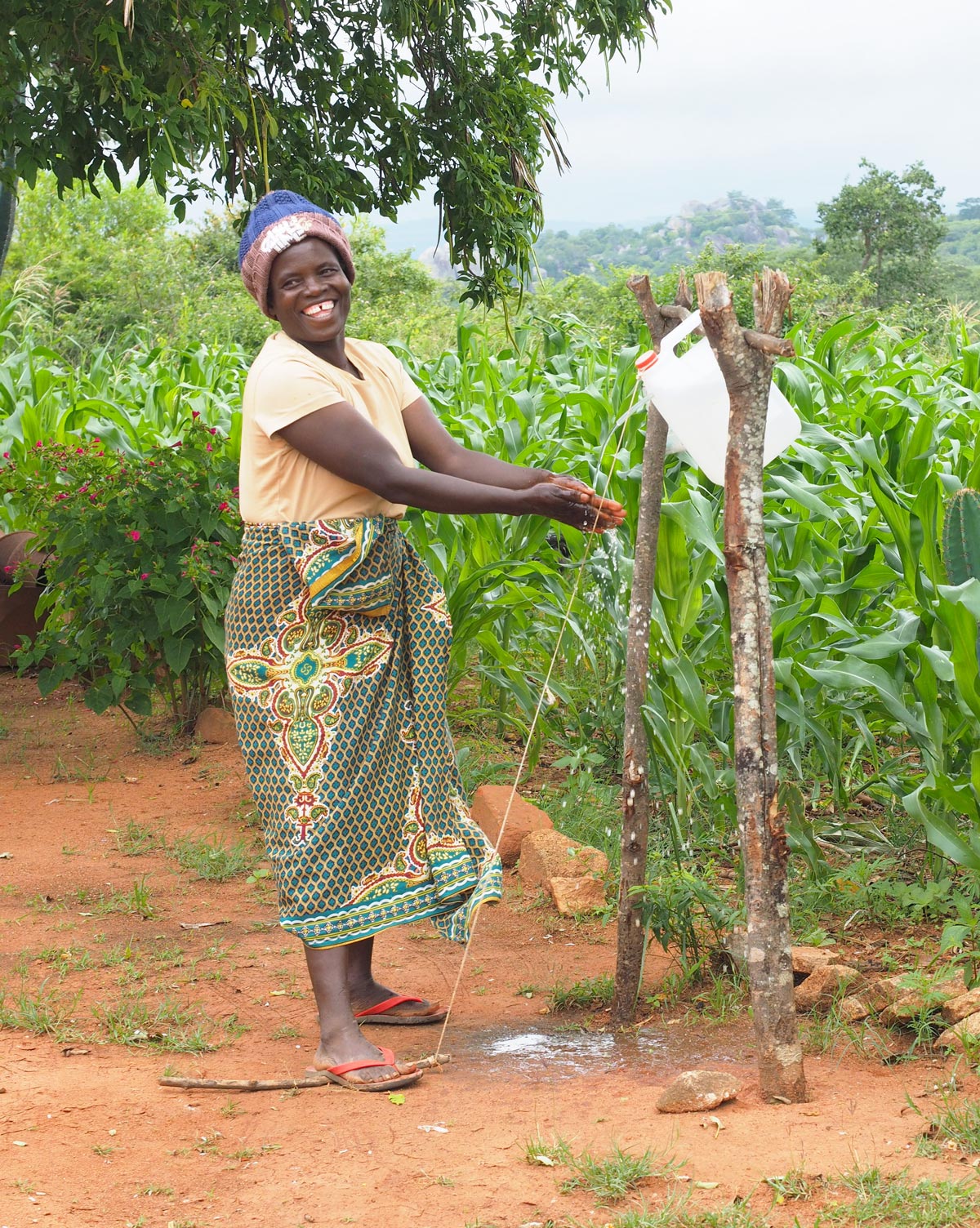Tippy Tap
Handwashing has been shown to substantially reduce rates of diarrhea, which can be debilitating and even deadly. Despite this, in rural Zimbabwe, rates of handwashing with soap at critical times, such as before eating and after using the toilet, remain extremely low. Teaching proper handwashing methods is important but not enough to change behaviour. In rural areas where few have running water and water and soap are scarce resources, providing a way to make handwashing easy, safe, and convenient at key times is essential to producing new and sustained handwashing habits.
The tippy tap is a simple, very low cost, yet highly-effective tool to promote and facilitate handwashing. A tippy tap consists of a 3 to 5 liter plastic container filled with water and suspended from a wooden frame. A string attached to the neck of the container is tied to a piece of wood at ground level. Users simply step on the piece of wood to tip the container and start the flow of water. Soap can be dissolved in the water or a piece of soap suspended from the frame. When soap is not available, wood ash is a very effective alternative. Tippy taps minimize water use and avoid contamination of a family's water supply stored in buckets and needed for cooking and other household purposes.


